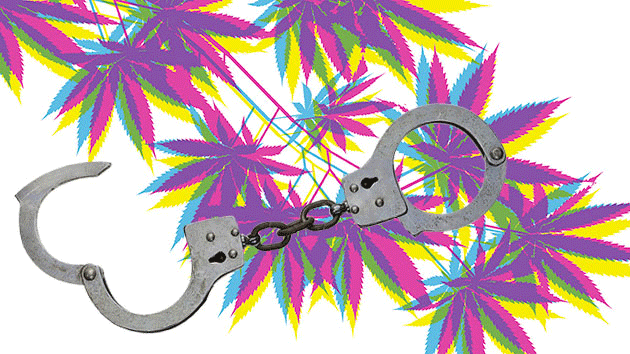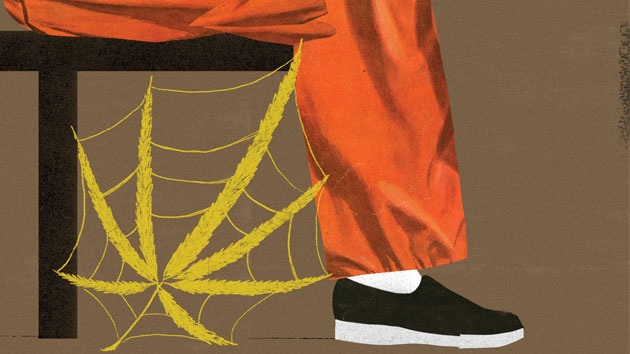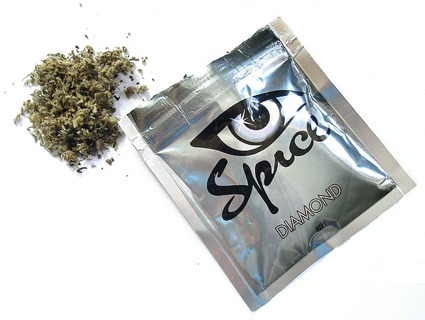
<a href="http://www.shutterstock.com/pic-322263122/stock-photo-marijuana-and-handcuffs-isolated-on-white-background.html?src=csl_recent_image-1">Eskymaks</a>/Shutterstock
President Barack Obama commuted the sentences of 61 drug offenders on Wednesday, as part of his push to ramp up clemencies and reform sentencing laws. That brings his total commutations to 248 since taking office, more than the past six presidents combined.
More than a third of the 61 inmates were serving life sentences on charges related to possession and distribution of drugs including cocaine, methamphetamines, and marijuana. Unlike recent rounds of commutations, however, none of them were serving life sentences for marijuana-only crimes. As Mother Jones has reported in the past, scores of so-called pot lifers remain behind bars.
“Sadly none of my guys are on this list,” says Cheri Sicard, founder of the Marijuana Lifer Project, a nonprofit advocacy group that aims to reverse the life sentences of people charged with marijuana crimes. “That will be a huge disappointment to all of them, especially 81-year-old Antonio Bascaro,” she says, referring to the longest-serving marijuana prisoner in the United States. “He does not have much time left.”
Neil Eggleston, the White House counsel, wrote in a blog post that Obama will continue his relatively aggressive pace of commutations during the remainder of his presidency. But his administration is still far from the goal it announced as part of a clemency initiative in 2011, when former Attorney General Eric Holder said that some 10,000 prisoners “were potentially going to be released.”
More than 10,000 inmates have since applied for relief, but there’s mounting evidence that the Justice Department’s Office of the Pardon Attorney (OPA)—which is responsible for vetting and recommending clemency petitions to the White House—has been hampered by a bureaucratic culture and broken process in which the cases of qualifying applicants often go unheard or are regularly rejected against the OPA’s recommendations.
In January, former Pardon Attorney Deborah Leff resigned from her post after less than two years on the job. Her resignation letter, obtained by USA Today under a Freedom of Information Act request, offers a rare glimpse into a department that is shrouded in secrecy. “Given that the Department has not fulfilled its commitment to provide the resources necessary for my office to make timely and thoughtful recommendations on clemency to the President, given your statement that the needed staff will not be forthcoming, and given that I have been instructed to set aside thousands of petitions for pardon and traditional commutation, I cannot fulfill my responsibilities as Pardon Attorney,” Leff wrote to Deputy Attorney General Sally Quillian Yates, who is responsible for forwarding the OPA’s recommendations to the White House.
Leff criticized Yates for overruling her recommendations and said the president was often not informed of the differences in opinion. “I believe that prior to making the serious and complex decisions underlying clemency, it is important for the President to have a full set of views,” she wrote.
Leff’s letter placed the blame for much dysfunction on the OPA’s supervisors. But in the past, Samuel Morison, a former OPA staff attorney turned whistleblower, has accused the OPA itself of routinely denying petitions “without any real consideration.” Morison noted that once cases do reach the White House, the president often takes the OPA’s advice. “The number of times the president doesn’t do what the pardon attorney suggests is extremely low,” he told me last August.
Under Leff’s leadership, Obama’s clemency numbers slowly rose. Her predecessor, Ronald L. Rodgers, a former military judge and a major prosecutor of drug crimes, was removed from office in April 2014 after failing to accurately share key information with the president in a high-profile clemency case, and during his tenure Obama granted fewer clemencies than any other modern president.
America’s federal prisons hold nearly 200,000 people; some 95,000 of them are incarcerated on nonviolent drug charges. Sicard of the Marijuana Lifer Project believes the marijuana lifers offer low-hanging fruit for an administration that has vowed to reverse “unduly harsh sentences” for drug crimes. Of Wednesday’s commutations, Amy Povah, president of the CAN-DO Foundation, which advocates on behalf of individuals charged with nonviolent drug crimes, says that while she is “thrilled that President Obama has chosen to end the suffering of these deserving applicants,” she remains concerned about others whose long-standing petitions for clemency have not yet been granted. These include Michael Pelletier, who has been in a wheelchair since he was 11 years old and is serving a life sentence for marijuana charges. The way Povah sees it, “we have a long way to go before [Obama] leaves office.”
















